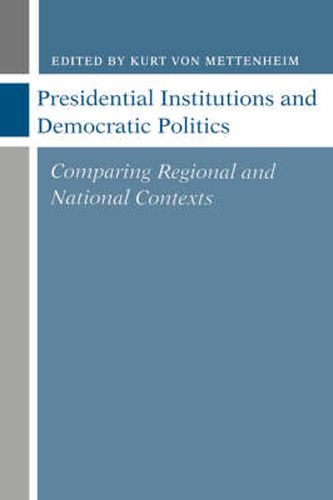Readings Newsletter
Become a Readings Member to make your shopping experience even easier.
Sign in or sign up for free!
You’re not far away from qualifying for FREE standard shipping within Australia
You’ve qualified for FREE standard shipping within Australia
The cart is loading…






This volume argues that the American presidential system that separates and diffuses power can provide new perspectives for those building democratic institutions in Latin America, Eastern Europe, and the new republics of the former Soviet Union. The authors recognize the risks of rigidity, gridlock and excessive centralization in presidential institutions. However, they also emphasize the unexpectant levels of legislative productivity during periods of divided government, the dramatic reversal of declining popularity by Presidents Reagan and Clinton, and the importance of direct appeals by presidents to the nation. After examining the American presidential system, the authors focus on the de-facto separation of powers in European parliament and presidentialism in France, Latin America and Eastern Europe. Both trends in European parliamentary systems and the dramatic changes within French presidential institutions suggest that scholars should temper broad generalizations about presidential or parliamentary government.
$9.00 standard shipping within Australia
FREE standard shipping within Australia for orders over $100.00
Express & International shipping calculated at checkout
This volume argues that the American presidential system that separates and diffuses power can provide new perspectives for those building democratic institutions in Latin America, Eastern Europe, and the new republics of the former Soviet Union. The authors recognize the risks of rigidity, gridlock and excessive centralization in presidential institutions. However, they also emphasize the unexpectant levels of legislative productivity during periods of divided government, the dramatic reversal of declining popularity by Presidents Reagan and Clinton, and the importance of direct appeals by presidents to the nation. After examining the American presidential system, the authors focus on the de-facto separation of powers in European parliament and presidentialism in France, Latin America and Eastern Europe. Both trends in European parliamentary systems and the dramatic changes within French presidential institutions suggest that scholars should temper broad generalizations about presidential or parliamentary government.